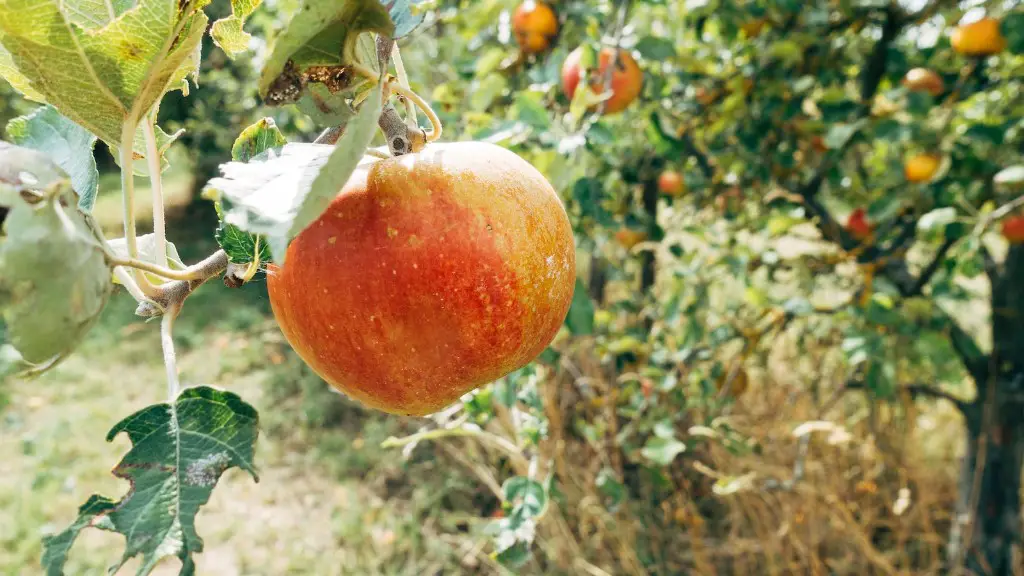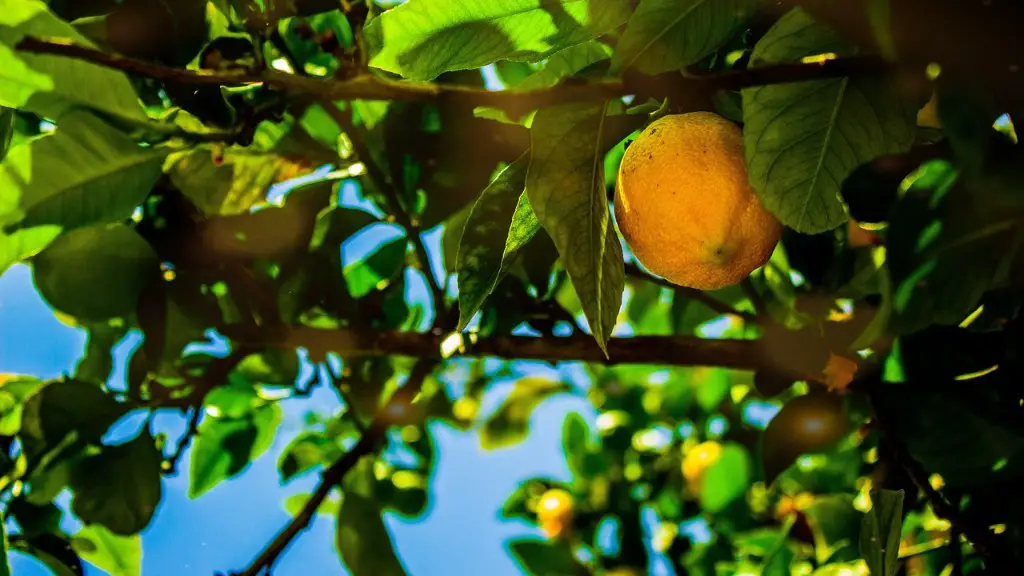Apple tree leaf discoloration is a frequent issue for apple tree owners. Most commonly, the leaves are turning yellow. Yellowness in the leaves is more than likely due to a few different causes. Firstly, a nutrient deficiency is likely to blame. Apple trees require a specific balance of nitrogen and other minerals. If the tree is lacking one or more of these minerals, their leaves may start to yellow. Secondly, irrigation issues can also cause yellow leaves. Overwatering and sporadic watering can lead to yellowing as the tree has difficulty absorbing what it needs, leaving leaves yellow. Thirdly, apple trees are susceptible to fungal and bacterial diseases, both of which can cause yellowing of the leaves. Common diseases include apple scab, black spot and rust. Additionally, pests such as aphids, caterpillars and mites can also cause leaves to yellow as they suck away the proteins, minerals and moisture from the leaves.
Excess Iron
Excess iron in the soil can also result in yellow leaves on apple trees. The iron binds itself to the other minerals in the pH-balanced soil, such as nitrogen and phosphorus, which can lead to a deficiency in these nutrients. It is important to monitor the amount of iron present in your soil to ensure the apple tree has adequate nutrients to remain healthy.
Releasing buildup can help alleviate yellow leaves in apple trees. If your soil’s nitrogen, phosphorus, and iron levels are all within range it is likely a buildup of salts in the soil. To flush these out, you can use a leaching technique, by irrigation with a pressure washer or simply an ample amount of water.
Regulating Water
Watering your apple tree regularly, but not excessively, can help to prevent yellow leaves due to nutrient deficiencies. A tree should be properly irrigated at least once a week during its vegetative cycle. New trees should be irrigated at least three times a week until their root systems have become well established. Water the area around the tree and not the leaves or trunk; the root system will absorb the moisture and provide the tree with the nutrients it needs to stay healthy.
Fungus and Disease
Fungal and bacterial diseases can also be responsible for the yellowing of the leaves of your apple tree. If the leaves are turning yellow and other signs of disease such as patches of dead or discolored bark are present, a fungicide or pesticide must be used. Be sure to seek the advice of an arborist or other qualified professional when treating a tree for any type of disease.
Insects
Insects such as aphids, caterpillars and mites can devastate your apple tree by sucking away the proteins, minerals and moisture from the leaves, resulting in yellow or discolored leaves. The best way to control these pests is to use a pesticide. Be sure to follow all safety guidelines when using pesticides and read the label on the product to ensure proper application and usage.
Pruning
Proper pruning is essential to maintain the health of an apple tree. Pruning should be done on an annual basis to remove dead or diseased branches, thin out overcrowded limbs, and ensure proper sunlight exposure to the leaves. This can help the tree to resist disease and pests, and maintain adequate nutrient levels, resulting in fewer yellow leaves.
Soil Fertility
Maintaining the fertility of your soil is essential for apple tree health. An annual soil test can help determine the levels of nitrogen and other important minerals, as well as potential pollutants. The results of this test can be used to determine if additional fertilization or other soil amendments are needed. Keeping your soil healthy will help your apple tree stay healthy and limit the number of yellow leaves.


